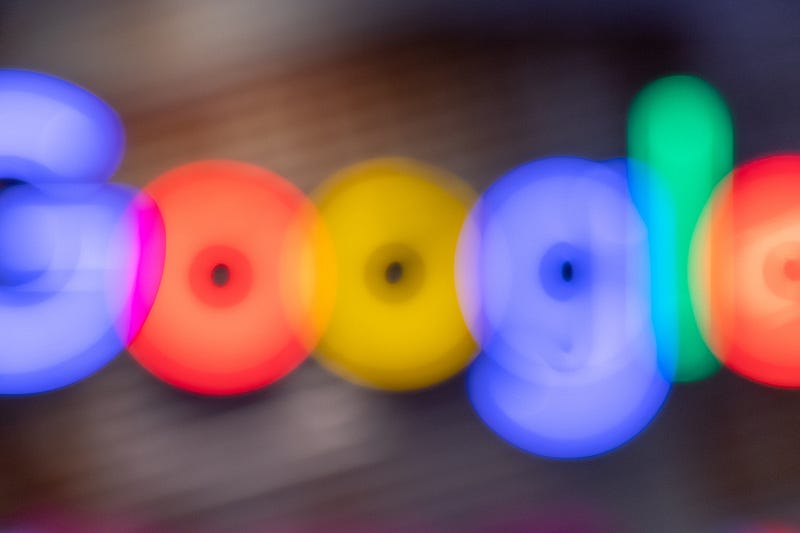In the world of digital giants, Google stands as an undisputed titan. It is the starting point for more than 90% of all web searches, making it an integral part of our online lives. However, the Department of Justice's (DOJ) antitrust case against Google, which is set to go to trial, has raised critical questions about its dominance in the digital landscape. This article delves into the heart of the matter, dissecting the core arguments and potential implications of this monumental trial.
The Core Issue
At its core, the trial revolves around one fundamental question: Did Google stifle competition and harm consumers by becoming the default search engine through exclusive deals with phone manufacturers and internet browsers? The DOJ contends that Google's path to monopolization was paved with these exclusive contracts, effectively squashing any chance for competitive search engines to flourish.
Understanding the Government's Case
The government's case against Google rests on two primary pillars. First, it asserts that Google's monopoly wasn't built on the merit of its search engine innovations but rather through these exclusionary contracts. These agreements prevented competitors from gaining a foothold in the market, a practice that violates American antitrust laws.
The second element of the government's case centers on the undeniable fact that Google is a monopolist in the search engine domain. Owning a staggering 90% of search traffic, it's challenging for Google to argue against its status as a monopoly.
Google's Counterarguments
Google's defense strategy involves challenging the very definition of the market and what constitutes a search. They argue that they are synonymous with the concept of online search, represented by that iconic blank page adorned with the Google logo. While Google undoubtedly holds a significant share of the market, they contend that the definition of search extends beyond their services. Consumers search for products on Amazon, discover music on Spotify, and seek diverse content on TikTok. Google posits that these varied search methods demonstrate a broader understanding of what constitutes a search, allowing room for competition.
The Potential Impact of a Verdict
Should Google lose this case, the practical consequences could be substantial. While previous fines in Europe have penalized Google for its competitive practices, the potential outcome of this trial could be far-reaching. The most significant impact may be on antitrust law itself. This case bears a striking resemblance to the DOJ's lawsuit against Microsoft two decades ago, raising questions about whether such cases could become precedents for reigning in big tech corporations. Companies like Meta and Amazon are closely monitoring the trial's progress, understanding its implications for their own futures.
The potential relief for Google, if found guilty, would likely involve injunctive measures rather than fines. The government could demand that Google cease certain business practices, and in the most severe scenario, even call for a divestiture or breakup.
The Lengthy Antitrust Process
Antitrust trials are notorious for their protracted nature. Even if Google is found liable during this phase of the trial, further proceedings may be necessary to determine the most suitable resolution. Observers of this case will be keenly watching whether the judge acknowledges market definitions and the nature of Google's contracts with business partners, which are key factors in determining whether antitrust laws have been violated.
Why Now?
A lingering question surrounds the timing of this trial. Google has faced accusations of leveraging its power to suppress competitors' links to various services like travel, maps, and reviews for years. While regulatory investigations have occurred, significant action has been relatively absent until now.
Conclusion
As the Google antitrust trial unfolds, it heralds a new era of antitrust enforcement in the digital age. The outcome of this trial could have far-reaching consequences, not only for Google but for the entire tech industry. It has the potential to reshape the competitive landscape and redefine the boundaries of antitrust law in the modern era, influencing the future of technology and innovation.
FAQ
Q1: What is the Google antitrust trial about?
The Google antitrust trial centers on whether Google stifled competition and harmed consumers by becoming the default search engine through exclusive deals with phone manufacturers and internet browsers.
Q2: What are the key arguments in this trial?
The government's case against Google is based on two main pillars: that Google's monopoly wasn't achieved through innovation but rather through exclusionary contracts, and that Google is, undeniably, a monopolist in the search engine domain.
Q3: How has Google responded to these allegations?
Google challenges the definition of the market, arguing that their dominance in online search doesn't equate to monopolization. They assert that consumers search for various types of content using different platforms, expanding the scope of what constitutes a search.
Q4: What could be the practical impact if Google loses the trial?
If Google loses, it could have significant consequences, not only for Google but for the entire tech industry. The outcome might influence antitrust law, potentially leading to injunctive measures and, in extreme cases, a divestiture or breakup of the company.
Q5: Why is this trial happening now?
The trial's timing is influenced by a change in administration and the accumulation of evidence regarding Google's practices over the years. The judge's willingness to consider each aspect of Google's conduct individually also adds to the trial's significance.

Comments
Post a Comment